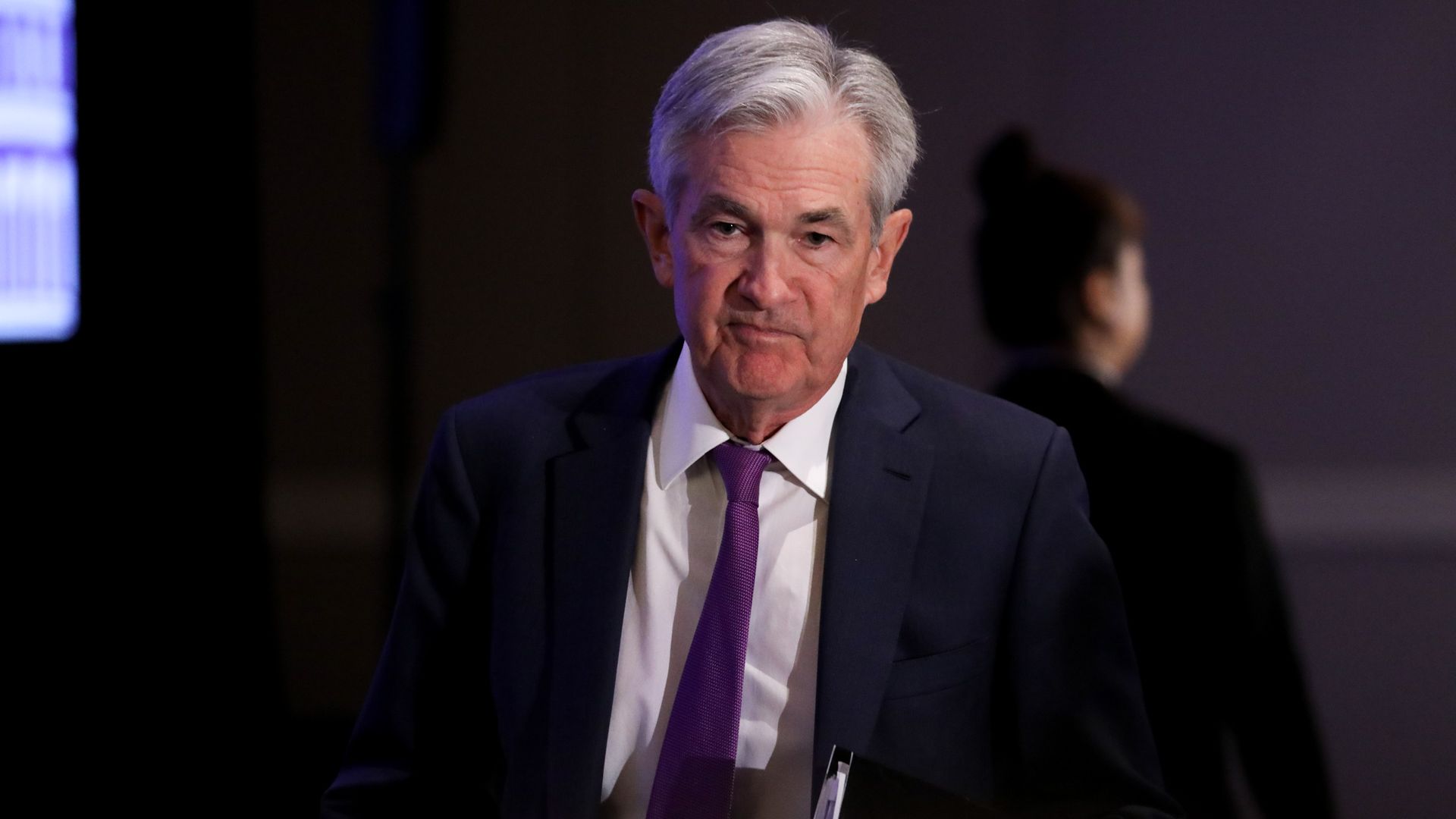Fed's Powell gives a green light to 0.5% rate hikes
Add Axios as your preferred source to
see more of our stories on Google.

Fed Chair Jerome Powell. Photo: Yasin Ozturk/Anadolu Agency via Getty Images
Lest there remain any doubt, Federal Reserve Chair Jerome Powell knocked it down Thursday: The Federal Reserve is likely to raise interest rates half a percentage point at its policy meeting in two weeks, the first such move in 22 years.
Driving the news: In a panel discussion at the IMF Thursday, Powell said that it is appropriate "to be moving a little more quickly" on rate hikes and that financial markets are "acting appropriately generally" as they have adjusted for those expectations.
- The central bank is now focused on actual reductions in inflation rate rather than mere forecasts, he said. Asked whether March may turn out to be the peak of inflation, he said "It may be the actual peak was in March, but we don't know that so we're not going to count on it."
- In a policy meeting that concludes May 4, the Fed looks likely to both hike rates a half-percent while also commencing "quantitative tightening," shrinking its balance sheet by up to $95 billion a month.
Powell's comments essentially affirm a message that has come from numerous Fed officials in recent days, showing that even usually-dovish leaders of the central banks believe the Fed needs to move quickly to get monetary policy out of its current stimulative stance.
- “I see an expeditious march to neutral by the end of the year as a prudent path,” San Francisco Fed President Mary Daly in a speech Wednesday. “Moving purposefully to a more neutral stance that does not stimulate the economy is the top priority."
State of play: Financial markets have already priced in this more aggressive path. One sign: The average rate on a 30 year fixed-rate mortgage soared to 5.11% this week, Freddie Mac said, up from 3.76% in early March.
The bottom line: Powell could have elected to push back on those expectations if he thought markets were getting ahead of things. The absence of pushback, in a situation like this, amounts to confirmation that an aggressive path of rate hikes is the plan.
